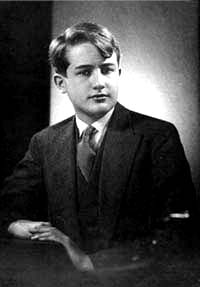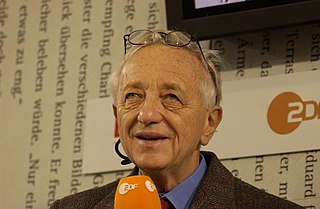A Quote by Carroll Quigley
The process by which civilization, as an abstract entity distinct from the societies in which it is embodied, dies or is reborn is a very significant one.
Related Quotes
Free societies, which allow differences to speak and be heard, and live by intermarriage, commerce, and free migration, and democratic societies, which convert enemies into adversaries and reconcile differences without resort to violence, are societies in which the genocidal temptation is unlikely and even inconceivable.
Confusion conditions activity, which conditions consciousness, which conditions embodied personality, which conditions sensory experiences, which conditions impact, which conditions mood, which conditions craving, which conditions clinging, which conditions becoming, which conditions birth, which conditions aging and death.
On the future of the U.S., or of Western civilization in general, I tend to be quite pessimistic. I would say that today I see most of the symptoms of societies on the brink of collapse, not just in the U.S., but in the tightly interconnected societies of Western civilization - now essentially world civilization.
The idea of psychedelic societies is something new. And it doesn't necessarily mean that everyone takes the drug. It merely means that the complexity and the mysteriousness of mind are centered in the consciousness of the civilization as the mystery which it comes from and which it must relate to in order to be relevant.
Society in its full sense ... is never an entity separable from the individuals who compose it. No individual can arrive even at the threshold of his potentialities without a culture in which he participates. Conversely, no civilization has in it any element which in the last analysis is not the contribution of an individual.
Since education is not a means to living, but is identical with the operation of living a life which is fruitful and inherently significant, the only ultimate value which can be set up is just the process of living itself. And this is not an end to which studies and activities are subordinate means; it is the whole of which they are ingredients.
Art is the process of evoking pity and terror, which is not abstract at all but very human. What the self-styled modern artists are doing is a sort of unemotional pseudointellectual masturbation . . . whereas creative art is more like intercourse, in which the artist must seduce -- render emotional -- his audience, each time.
I do not deny God, because that word conveys to me no idea, and I cannot deny that which presents to me no distinct affirmation, and of which the would-be affirmer has no conception. I cannot war with a nonentity. If, however, God is affirmed to represent an existence which is distinct from the existence of which I am a mode, and which it is alleged is not the noumenon of which the word I represents only a speciality of phenomena, then I deny God, and affirm that it is impossible God can be.






































